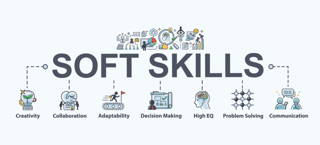Thinking (T) vs. Feeling (F)
Renowned for 15+ years, The Bridge Personality 16 personality test is a key tool for companies, based on Carl Jung's personality model. It assesses employees across four dimensions: Extraversion vs. Introversion, Sensing vs. Intuition, Thinking vs. Feeling, and Judging vs. Perceiving. These dimensions are crucial in determining the 16 Jungian personality types. Available as individual tests or a subscription service, it provides instant, in-depth personality profiles, aiding in team building and staff understanding.
The Jung dimension: Thinking (T) versus Feeling (F)
The third dimension in the 16 Jung Types preferences is Thinking (T) against Feeling (F). These represent contrasting mental processes used in decision-making.
Decision-Making: Thinking vs. Feeling
Individuals favoring Thinking prioritize objective criteria and logical analysis in decisions, focusing on facts and systems. Those leaning towards Feeling emphasize personal values and the impact on people, valuing relationships and emotions.
Redefining Thinking and Feeling
In Jung's typology, Thinking and Feeling diverge from their common interpretations. Feeling-based decision-making centers on people and values, while Thinking-based decision-making hinges on logic and systems. These terms go beyond mere emotion and intellect, indicating a preference rather than ability.
Balancing Thinking and Feeling in Decision-Making
While we all use both Thinking and Feeling in decisions, one often feels more natural (or easy) than the other. Jung believed that integrating both leads to more balanced and sound judgments.
Characteristics of Thinking and Feeling
Evaluate the traits below, considering which aligns more naturally with your decision-making style:
Thinking preference traits:
Feeling preference traits:
Influence of Thinking or Feeling
These preferences shape our decision-making process, feedback style, conflict resolution approach, and preferences for recognition and appreciation, integral to the dynamics of the 16 Jung Types.
The Bridge Tests & Online Assessments
TestGroup is the official provider of the renowned Bridge tests and online assessments, which are high-quality, scientifically validated psychometric tools used globally. Developed in collaboration with universities around the world, these assessments predict workplace behavior through personality tests, cognitive ability evaluations, and career assessments. We assist organizations globally in using online assessments.














